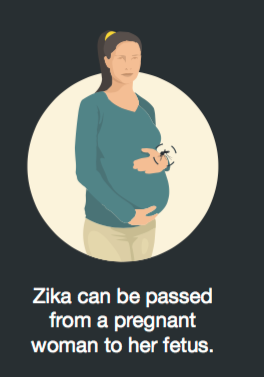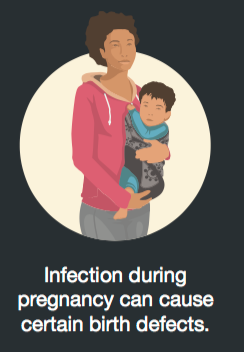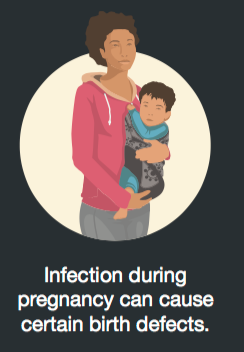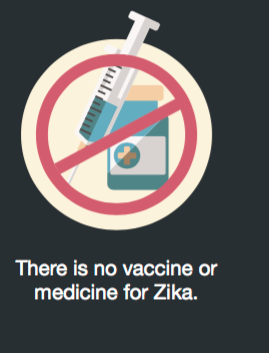By Evan Merrill
NKyTribune intern
Prevention – not panic – is the recommended method for Northern Kentuckians to deal with the mosquito season and the possibility of a Zika virus outbreak.
State officials have confirmed six cases so far. All involved people who had visited overseas and returned with the virus.

Patty Burns, the manager of the infection control department at St. Elizabeth Healthcare, echoed the uncertainty of the situation.
“The potential is there because the kind of mosquito that is expected to carry the virus does live in our area in the summer, so the possibility exists,” Burns said. “But we have also never had huge outbreaks of (mosquito-borne diseases) like Dengue, Chikungunya, which these mosquitoes carry in other parts of the world.”
The two mosquito species currently carrying the virus, the Aedes Aegypti and Aedes Albopictus, are far less common in this area, where the Culex species is prominent, according to Steve Divine, director of environmental health and safety at the Northern Kentucky Health Department.

A significant reason mosquito-borne diseases carried by the Aedes species fail to spread in the United States is that health conditions are superior to those in many countries. The Center for Disease Control and Prevention reported on June 15 that tests on 234 pregnant women in the United States have shown positive for the Zika virus.
Most of the pregnancies are ongoing, the center reported, but three babies have been born with birth defects and three others died showing evidence of birth defects.
More information is available at the CDC website.
Northern Kentucky health officials advise that steps to prevent a Zika outbreak should be undertaken.
“Make sure you don’t have breeding sites close to your home, anywhere from baby pools, unkempt larger pools in backyards, clogged gutters, bird baths that don’t get emptied regularly, even buckets and smaller items such as garbage cups left out in a yard. It only takes a small amount of water to breed, as far as mosquitoes are concerned,” Divine said.
These warnings are directed especially at pregnant women, or women who are looking to become pregnant. The virus has proven extremely harmful to fetuses.
“To this point the thing people were most concerned with was the microcephaly, or the small brain,” said Burns. “They’re also proposing Zika can have effects on the kidneys and other body systems, so it sounds like this virus is very, very deadly to a fetus.”

Everyone, especially pregnant women, should follow the recommended prevention steps: use insect repellent, cover the body with longer clothing, and watch out for sexual transmission if a partner returns from a country with the virus.
Divine also recommends anyone returning from a foreign country use insect repellent for up to three weeks. That would reduce the possibility that a local mosquito would contract the virus from biting a traveler.
Although pregnant women may have concerns with insect repellent, Emily Gresham Wherle, public information administrator at the Northern Kentucky Health Department, advises them to use it.
“I would say that a lot of people, particularly pregnant women, are concerned about using insect repellent. It is recommended that [prevention] does by far outweigh any concerns about using a repellent,” Wherle said.
Another deterrent option is spraying yards with mosquito or insect spray available at stores. Many lawn care services offer that option.
“I don’t think it’s a bad idea. I’m not exactly sure which companies are using which products, so I can’t speak specifically to how they’re individually treating lawns,” said Divine. “But I know that some of these type of treatments can be fairly effective, at least on a temporary basis to help knock down some of the insects, including mosquitoes around a house.

People with breathing problems or allergies and parents of children with such issues should investigate before using one of these products.
“I would specifically ask what product they use, how they apply it, what its staying power is and then based on what type of material they’re using, how it may affect people that may be sensitive to it, due to asthma or skin irritations.” said Divine.
The Kentucky Department for Public Health has also begun Zika virus testing at the state lab in Frankfort. Health officials do not recommend testing for everyone returning from a country where Zika is present.
“The only people recommended for testing at this point are pregnant women because of the potential bad outcome to the fetuses,” said Burns. “In the vast majority of other people, the infection is mild.”
She said that most people who contract the virus are unaware because of the lack of symptoms, and no real treatment exists at this point.
Anyone who has traveled to a country where the virus is present and begins showing symptoms should contact a doctor.
Symptoms, according to the Center for Disease Control, include fever, rash, joint pain, muscle pain, red eyes and headaches.

The harsh reality for many Northern Kentuckians is that they may have to reconsider travel plans, whether it be to the Rio Olympics this summer, or to Central America, especially if they’re pregnant.
“The (Center for Disease Control) has an advisory right now, which advises them to postpone travel if they’re pregnant, or thinking about becoming pregnant, to infected areas,” said Divine. “But keep that in mind. I would consult a family physician so they can have that conversation with you as well.”
Immunization options for Zika do not exist, according to Burns, but one may be on the horizon.
Despite the uncertainty in regard to transmission, Burns remains optimistic and reassuring.
“I think people do not need to panic, as frightening as it is. I think there are things we can do to protect ourselves. Evaluate the situation you’re in; if you’re sitting in Northern Kentucky, your risk is still low so there’s no reason to panic at that point,” said Burns.
“Things will constantly change as we go through the summer. Who knows, we may not even have local cases; we just have to watch it as we go.”
Evan Merrill from Covington is a senior journalism major at the University of Kentucky. Illustrations are from the Center for Disease Control.





















